Life
Sign up for our newsletter
We summarize the week's scientific breakthroughs every Thursday.
-
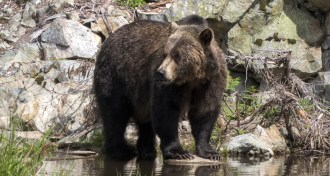 Animals
AnimalsGrizzly bears get stressed from salmon decline
Grizzlies in coastal British Columbia bulk up on salmon in the fall, but they experience stress when the fish are scarce.
-
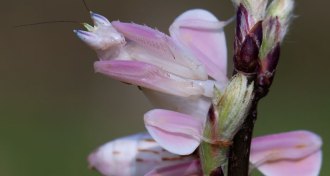 Animals
AnimalsA corsage that bites
The orchid mantis uses a flowery subterfuge to lure prey.
By Susan Milius -
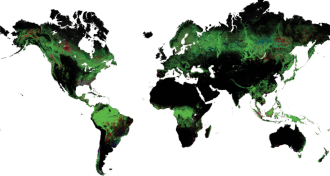 Ecosystems
EcosystemsOnline map tracks forest shifts from space
By layering more than 650,000 satellite images onto a Google map, researchers have created a new tool to track forest cover.
By Meghan Rosen -
 Animals
AnimalsDazzle camouflage may fool a locust
The bold zig-zag patterns that adorned naval ships during the world wars also appear in nature and may bewilder locusts, a new study suggests.
-
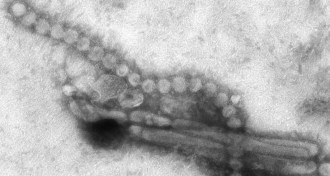 Life
LifeH7N9 flu still better adapted to infect birds over humans
The proteins from the avian flu appear better suited for attaching to bird, not human, molecules.
-
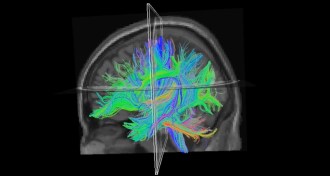 Neuroscience
NeuroscienceFaulty brain wiring may contribute to dyslexia
Adults with the disorder showed difficulty transmitting information among areas that process language.
By Beth Mole -
 Life
LifeAutism may have link to chemicals made by gut microbes
Beneficial bacteria improved abnormal behaviors in mice with altered intestines.
-
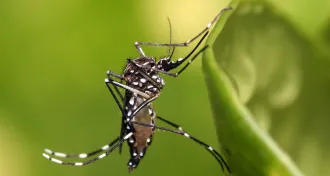 Life
LifeTargeting single set of nerve cells may block mosquitoes
The insects use the same neurons to detect carbon dioxide from our breath and odors from our skin so blocking those cells could lead to more simplified repellent systems.
-
 Life
LifeMale contraceptive test targets sperm’s travel route
Most efforts at a male contraceptive have focused on hormones, trying to stop production of sperm. A new study in mice explores leaving the sperm to themselves, and instead stops their transport.
-
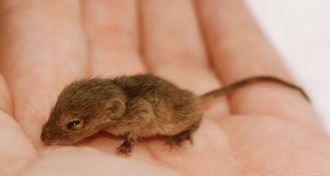 Neuroscience
NeuroscienceExcess activity shrinks blood vessels in baby mouse brains
Newborn mouse pups experience permanent brain changes when repeatedly overstimulated.
-
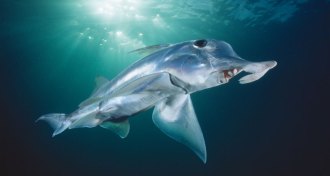 Animals
AnimalsHow the ghost shark lost its stomach
The lack of a digestive organ in fish and other animals is linked to genetics.
By Susan Milius -
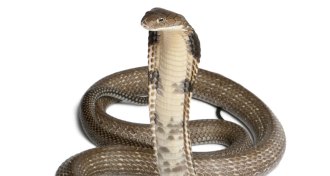 Genetics
GeneticsEvolution of venom, binge eating seen in snake DNA
Python and cobra genes evolved quickly to enable hunting strategies.